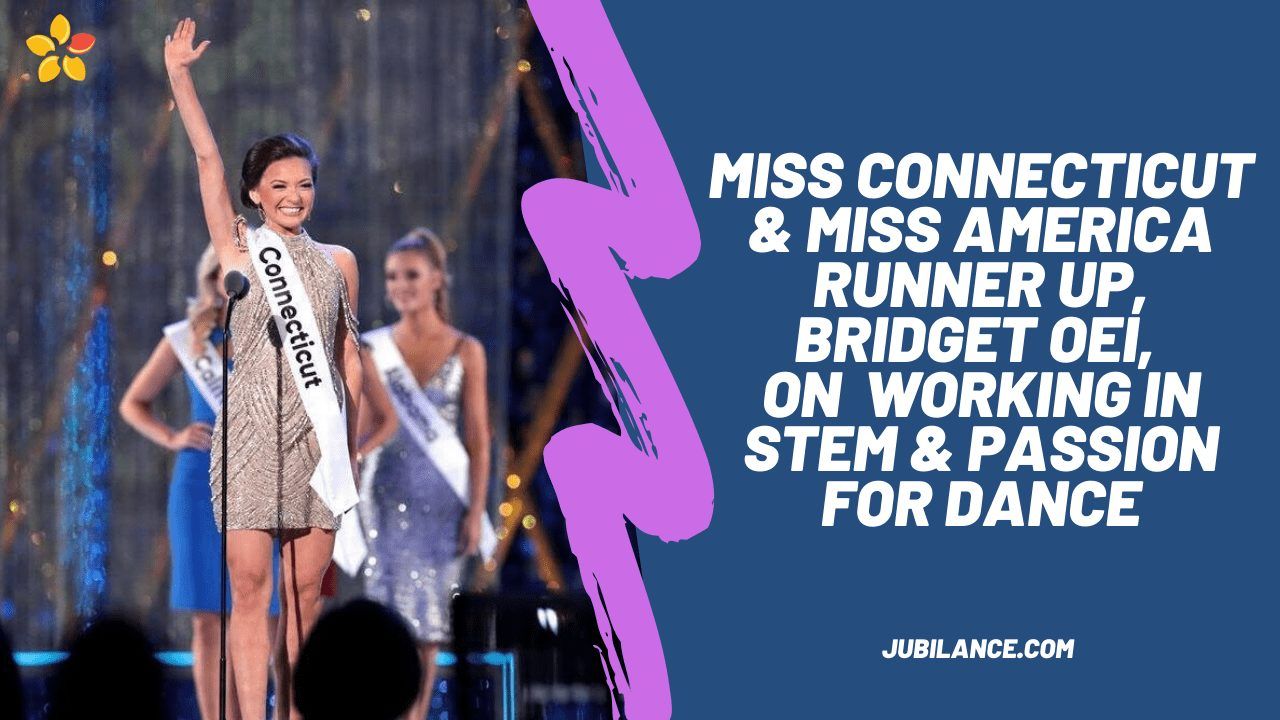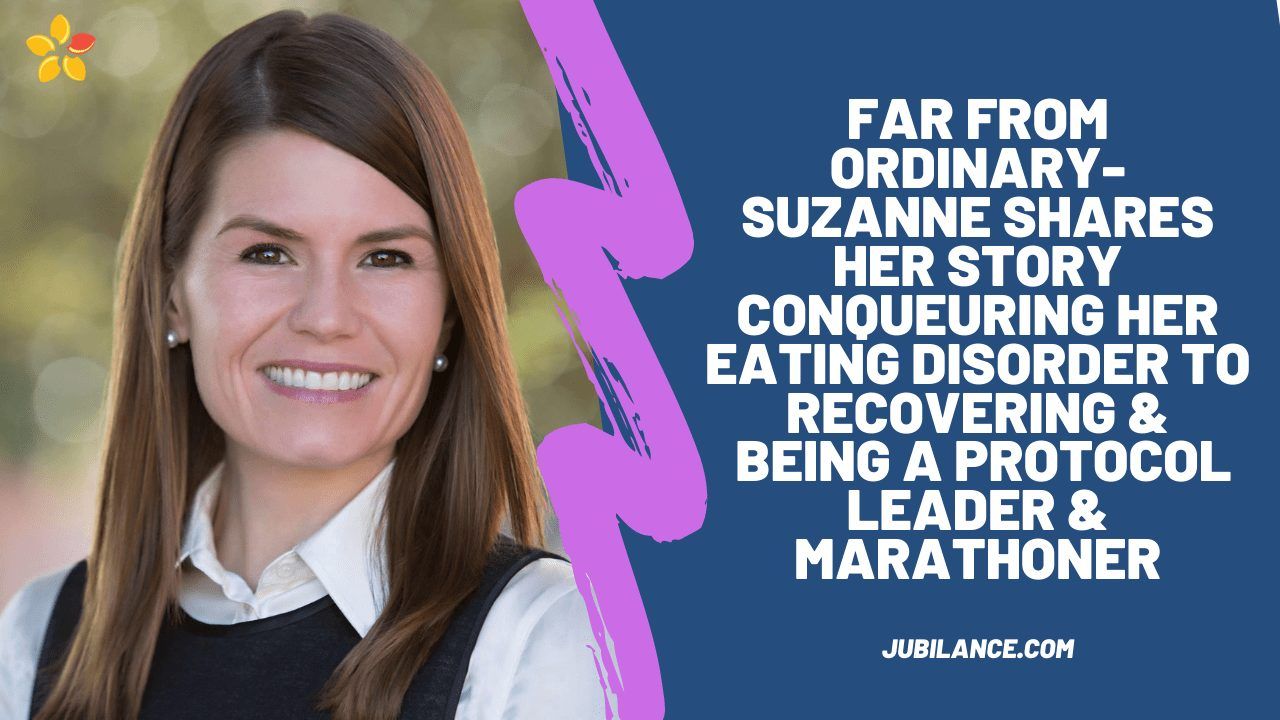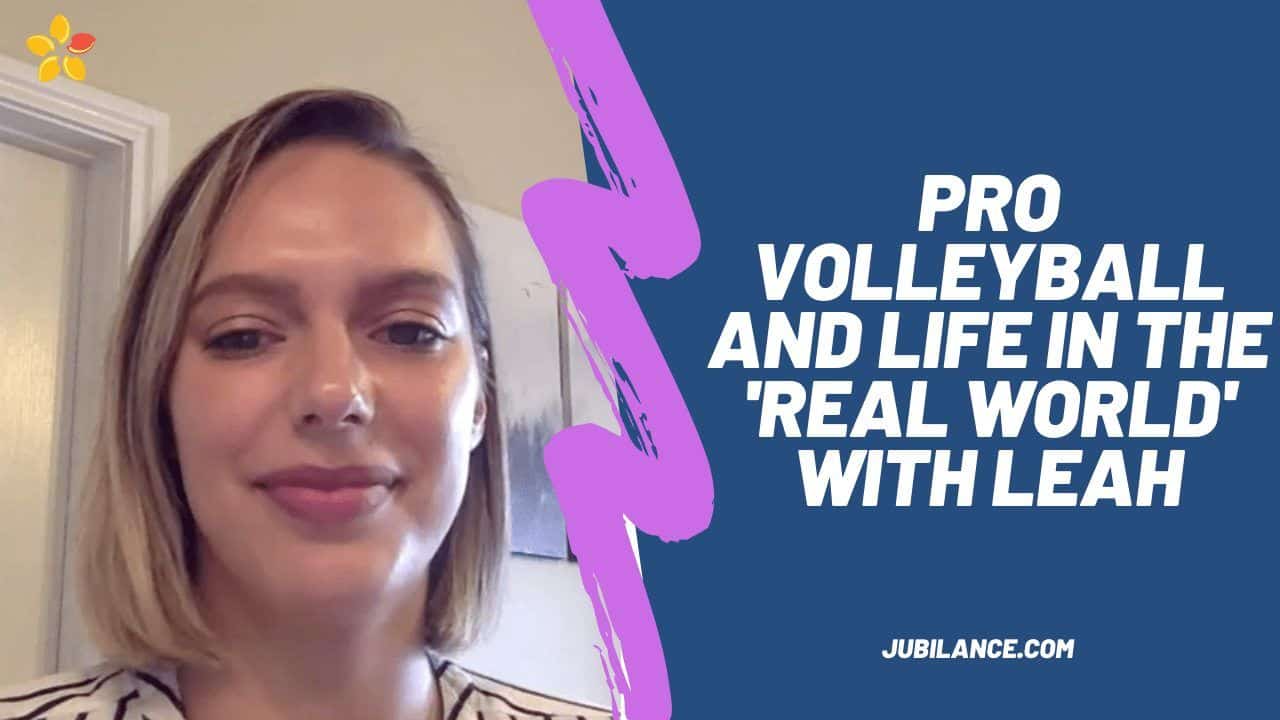Bridget Oei is a former Miss Connecticut who was the first runner up to be Miss America. And this amazing woman does it all. She’s currently in medical school at UConn. And she used her platform Women in STEM to help get young people interested in the sciences.
Watch her interview:
Listen to her interview:
Read her interview:
Alice: Hi everyone.
Bridget: Hi, everyone.
Alice: Hello. I’m Alice, the social media manager for Jubilance. And today I have Bridget Oei talking to us and Bridget is a former Miss Connecticut who was the first runner up to be Miss America. And this amazing woman does it all. She’s currently in medical school at UConn. And she used her platform Women in STEM to help get young people interested in the sciences. So we’re so excited to have you, welcome.
Bridget: Thank you so much for having me. I’m so excited to talk to you guys.
Alice: Yeah. So what is the biggest thing that you learned from Miss America?
Bridget: Being at Miss America was a really exciting opportunity. It wasn’t something that maybe I had been working towards or dreaming of, since I was a little girl. It’s something that I started while I was in college that I started competing for and I became Miss Connecticut after I graduated from UConn in 2018. And I think what I learned is in school at UConn, I got very involved in research and scientific inquiry and things like that. And I was obviously working very hard towards medical school.
Miss America and being Miss Connecticut gave me that opportunity to share my knowledge and share my thoughts and ideas with the rest of Connecticut and the nation. Being at Miss America, I got to share my story but beyond that, I got to work with kids. And it filled this hole inside of me that I think was missing, by being able to have that outreach aspect of my life. And so, it’s something that I fell in love with, during my time as Miss Connecticut and Miss America pushed me certainly. I mean, you’re on national television. So you have to present yourself and you had two hours to share exactly who you were, and tell America what you were there for. And so, it was so important to me when I got to Miss America to give it my all.
I just remember saying, no matter what, no matter win, lose or draw, first runner up, whatever, I wanted America to know just how proud I was of being there, of representing my state because I love Connecticut so much. And just to share you know, why I think science and STEM education is so important for young women. And I think I was able to really achieve that. So I walked away from Miss America, having just gained so much experience and just a confidence, a newfound confidence and that I can really contribute to the greater message that is science.
Alice: Wow, that’s wonderful. Thank you. And can you talk about living in Connecticut? Where is UConn located and where are you at now?
Bridget: Yes, so I was actually born in upstate New York, but when I was about two years old, I moved to Hebron Connecticut. I was actually homeschooled all the way through eighth grade and then went to East Catholic High School in Manchester, Connecticut and then I went to UConn. So that’s where I spent four years to get my undergraduate degree in environmental chemistry. And while I was there I was in Storrs, Connecticut. I graduated, became Miss Connecticut and now I’m in Farmington at UConn health as a first-year medical student.
Alice: Oh, great. Oh, so you’re in your first year. That’s amazing.
Bridget: First-year Medicine, yes.
Alice: Wow. And what is your favorite fact that you learned about Connecticut while you had your tenure as Miss Connecticut?
Bridget: That’s a really good question. I learned a lot of great facts. Mark Twain, grew up here and did a lot of his writing here, which is very exciting.
What I really loved about Connecticut was the community and the educational programs that are here. I think, with science in general, whether it be public or private schools, students don’t always know that we have so many different science programs here that are available. And so, things like the Connecticut State Science Fair that I was involved in, that is huge with thousands of students in sixth grade all the way through high school get to compete with original science projects. So, that was something that I loved getting involved in while I was here in Connecticut, and really grew from those experiences.
I mean, of course, our research programs here, through UConn in Storrs, as well as here with the health center, as well as Yale and the other colleges that are here just have really great opportunities for cutting edge research and opportunities for young people to get involved too. So I think that was something that I came to appreciate more, I always knew was there and I was involved as a young person, but getting to understand just how many opportunities are out there for the taking for these young kids was really exciting to me.
Alice: Wow, that’s awesome. Can you talk about your favorite part about this new area of Connecticut that you’re living in for medical school?
Bridget: Yes, so I spent a little bit of time in Farmington and where I was in Hebron growing up and even in Storrs, I’m on the one side of Connecticut of the Connecticut River. So I was always on the eastern side of Connecticut. And so now I’m on the west, which is super exciting. I’m a lot closer to a lot of different things.
UConn Health Center has Dempsey Hospital as well as all the academic buildings and everything like that. It is such a flagship part of Farmington. And so it’s exciting to be a part of that. Additionally, as first-year medical students, we’re placed in a clinic site, so it’s a clinical immersion site. So I work at a pediatrician’s office in Windsor, Connecticut. So it’s really great to get to travel around Connecticut and learn more about Connecticut and the patient population because, hopefully, my dream someday is to be a physician here in Connecticut and to serve this patient population. That’s super important to me and getting to learn about them and the patients that I will see now so that I learn as much as I possibly can about them and how best to treat them is a really great opportunity. So, I’m really fortunate to be living over here and I’m a big fan of Connecticut.
Alice: That’s awesome. Do you know specifically what you want to specialize in? Do you want to go into pediatrics like what you’re working on now?
Bridget: It’s really hard to say. When I was a senior in college, I thought, okay, well, if I want to do procedural work, and I’ve always wanted to because I love doing things with my hands, actually getting to fix a problem and be in control of that in terms of maybe on the other side, being just medicinal and doing management of drugs and things like that.
Well, I always thought maybe then surgery would be the way and I’ve gotten very interested in orthopedic surgery. I did a bunch of research while I was in college in orthopedic research where I worked on regeneration of articular cartilage in knee joints. And I love that so I thought, “Okay, I’m going to be a surgeon.”
So when I got to UConn, they obviously expose you to so many different specialties and I have just– my mind has been blown to the amount of opportunity. And I am the type of person that just loves everything, you teach me something new, and I love it. So, I have a long way to go. I don’t have to decide, specifically until my third year of medical school. So, I have a couple years of exploring and I intend to do just that. I want to explore every single option because really, the goal is that when I graduate, I want to be doing absolutely what I love and enjoy it for the rest of my life.
Alice: That’s amazing. It sounds like you have a long road ahead. So, you’ve been [inaudible] every option available. That’s amazing.
Bridget: Absolutely.
Alice: Can you talk about why you wanted to pursue medicine? It sounds like you’ve been in science forever but what drove you to go to medical school specifically?
Bridget: Yes, absolutely. So my parents are both engineers actually. My dad’s a mechanical engineer, my mom is an electrical engineer. So science conversations were things that we had over the dinner table and we talked about all the time. All my siblings, I’m one of four, we’re all in science. And so science was always something that was, you know, right in the back of my head and something that was so focal to my growing up in my education.
And I started on a bunch of research actually in renewable energy. So I got very interested in environmental science very early on. I did a slew of about 14 projects throughout my high school and grade school experience. I bring them to the Connecticut State Science Fair and then advance on to international fairs and national fairs as well. And a lot of my research was focused on environmental. So I worked on piezoelectric generators, where I made floor tiles that generated electricity when you walked on them. I invented a project that looked at the Panellus Stipticus, a bioluminescent mushroom that when exposed to different types of water, so maybe contaminated water, I’d be able to tell if the water was safe enough to drink using the bioluminescence of mushrooms as a biomarker.
And then when I was a sophomore in high school, I did a project that kind of bridged the gap between renewable energy and medicine. So, I developed a prototype of a piezoelectric thin-film device that when inserted inside a person’s trachea, it generates electricity using the wind emanating from the human lungs. And with each breath, you’re generating electricity and you can use that to power pacemakers. Generally, pacemakers have led based batteries that when after five to seven years, you have to have invasive surgery to get these batteries replaced. So, I wanted to come up with a renewable energy source for that. And I found this little prototype that I developed. And that was my first exposure to, well, I can take renewable energy and take an engineering project and use it to better someone’s life directly. And I think that’s where that seed of that intersection between human health and engineering, science and technology, but also humanity, really struck a chord with me.
And throughout college, I had experiences where I traveled to Lima Peru, the Dominican Republic, and I got to do some more health-based outreach. I absolutely fell in love. I think where I see myself is not only being involved in cutting edge technology and cool techniques and surgeries and things like that, but I want to see the direct benefit of it helping someone and a lot of doctors say that. But you seeing how we could better someone’s quality of life.
Alice: That’s wonderful, Bridget. Wow. Have you gone on with these prototypes that you created? What has happened with them?
Bridget: Yes, so one of my projects when I was in seventh grade, it got placed into a children’s museum actually in Norwalk, Connecticut.
I’ve gotten a few publications, UConn gave me grants when I went to college to continue some of my research. And so, I wrote a few manuscripts about it as well. It really bettered my science education as well. A
nd then I got involved in an osteoarthritis project, like we talked about with the knees, when I was in college. A lot of them are still kind of sitting on the back burner, but they definitely opened my eyes to a lot of different opportunities and getting to present them at science fairs was really helpful because not only did I win a bunch of scholarships, but I got to talk to experts in the field. So I got to present my work and bounce my ideas off to people who are experts and know really the ins and outs of the technology that I was exploring. So I gained a lot, a lot both, quantitative and qualitative.
Alice: That’s wonderful. And can you talk about a different sort of fair? Can you talk about how you got involved in pageants and why Miss Connecticut?
Bridget: Yes, so, it’s funny. I am the type of person that just loves trying new things. I mean, you give me something to try and I’ll go ahead and try it. And I will never forget, I was a sophomore in college and I remember going to my mom and saying, “You know what mom? What about a pageant? I’ve watched it on TV before, why don’t I try it?” She says, “You can do whatever you want girlfriend.” So, I just went for it and I became Miss Greater Rockville and competed for Miss Connecticut.
And at first, it was really exciting because I thought of it almost as a little vacation, I got to get dressed up and enjoy my time on stage. I’m a competitive Irish step dancer and have been for my entire life. So I’ve competed for about 20 years. And that was another opportunity for me to showcase my talent on stage. So, I think I loved pageants because of that, because I got to show people my culture and who I am, where I’ve come from, and how hard I work to be a dancer. And then I remember in my first year, I didn’t win Miss Connecticut, but I got the opportunity to talk about STEM and visiting schools and seeing kids around Connecticut and teaching them that, “Hey, even though you’re in sixth grade, you’re creative and curiosity can really make a difference in science.” So, that just really struck a chord with me and I stuck with it ever since and it became a goal to become Miss Connecticut.
Alice: Wow, that’s amazing. What was your favorite part about being Miss Connecticut?
Bridget: Definitely the kids. I mean, I’ll say it again and again but as Miss Connecticut, you become an ambassador for Connecticut Children’s Medical Center. Miss America, the organization, is partnered with the Children’s Miracle Network Hospitals. So those are all over the country. And I think as a student who was interested in medicine, it was exactly where I needed to be during my gap year. So, every month I got to visit Connecticut children’s and I would walk the patient floors, whether it be the NIC-U or the intensive care unit, outpatient services, things like that. I got involved in fundraisers, I got to be there around the holidays, I helped pack up toys for the kids. And it really gave me a sense of appreciation is “No, you don’t always have to be involved in the health aspect of keeping a kid happy but quality of life is provided not just by the medicine and the procedural work of being a physician, but also about the care aspect.” Right? “You need to care for these kids.” And so getting to be Miss Connecticut, I got to care for them in that way. And I just loved hearing their stories and I think I was skeptical at first. I remember my first visit when I visited Connecticut Children’s I said, “These kids are really sick. What can a girl on a crown and a sash really walk in and say to these kids to make them happy or like make a difference?” I was really skeptical at first. And within my first visit, just getting to talk to them about anything, whether it be pineapple pizza or we talked about Fortnite, whatever it was, getting to talk to them about something and let them know that “Hey, I’m here for you and anything that you need, I will work to get there.” And then of course, you know, being involved in the fundraisers and things like that really made a difference, and was something that will stay with me for the rest of my life.
Alice: That’s wonderful. And can you talk about competing in Miss America? What was that like?
Bridget: Miss America was super exciting. I remember something has been very central to me as a national contestant was getting to perform my Irish step dancing on stage. So, my goal for Miss America was, I want to show America what Irish dancing is all about because it’s kind of a hidden art form. People don’t really know. They think river dance, but there’s this whole competitive world of Irish step dancing that is so athletic. And it took up so much of my time, my effort and my passion, growing up as a dancer. So, my goal was to share that with America.
And I also wanted anytime I got to speak, I got to speak with conviction and share exactly why I was there and what was important to me. And certainly getting to be with 51 other wonderful women was exciting, and we were all there for very different reasons. And I came to a further greater appreciation of Miss America and how they draw in women from all walks of life that you really have something to say and stand as leaders for young women across the nation. So, that was super exciting. And I loved working with the organization and Miss America was just so much fun. I mean, it’s two hours, and I just gave it everything I had and it was really fun.
Alice: Amazing. And what does Miss America 2.0 mean?
Bridget: Miss America 2.0 is working towards a new brand. We were talking about relevance when the new board came in to run Miss America, and they wanted to say, “We want to make Miss America a more relevant woman.” Right? “She’s always been the it girl, but how can we change Miss America to give her a voice on a bigger platform.” And so traditionally, people had thought of Miss America as maybe a swimsuit competition, or maybe a beauty pageant, and we were trying to change that to say that “Hey, we are women of true substance and we have something to share.” And we all come from maybe a medical background or a business background or things like that.
So Miss America 2.0 was targeted on really highlighting the strengths that each of us women brought to the table. I actually think they’ve done away with Miss America 2.0 now because I think, what I taught in my year as Miss Connecticut is you know, you can also be involved in these artistic and this public service but also be smart and be a scientist. And so one of my things, while I was Miss Connecticut is you can be a princess and you can be a scientist, and that’s okay. And both are important, and both can be really fun and meaningful to your life.
Alice: That’s wonderful. And something that we talk about on this podcast every time is what does it mean to be a woman? And I guess for you like what is your definition right now? It can change like 30 seconds after you say it, but at this moment, what is it to you to be a woman?
Bridget: I love that you said that it can change, right? And I think that the role of the woman is evolving and I love that. For me, growing up, my parents they– I’m one of three girls and a boy. The youngest is a boy. And my parents never even taught us or really put any cap or limit on who we could be. They just said, “If you work hard, and you put your mind to something, and you give it everything you’ve got, you can do something to the best of your ability, and you’re limitless.” So, for me, being a woman is being limitless. I don’t want to think about the stereotypes or I don’t want to worry about the limits or what everyone thinks. When I have a goal, I want to go get it. And whatever that goal is, and 10 years from now, it might be different than right now. 30 seconds from now I could have a completely different principle, but nothing is in my way. And I think that oftentimes society has put that kind of stress on us (if you want to learn more about PMS Stress and helping to find relief, check out this link) that there are those limits, or, there are those outlined roles. But to be a woman today is to know that you are limitless and to have that work ethic and achieve your goal, no matter what because I don’t really think those things exist. You know, we can do whatever we want.
Alice: I completely agree. If you had one piece of advice to give us today, what would it be? It could be about anything really.
Bridget: One of the greatest pieces of advice that I got, and I really tried to translate while I was Miss Connecticut, and even today is the person that we’re going to be a year from now, maybe 4 years from now or after we have a degree or even 10 years to now when we’re moms or when we’re CEOs or whatever it is that we accomplish, the person that we are in the future is very different from the person that we are today. So, be open to that growth, welcome that growth with excitement and enthusiasm, and don’t be afraid of that kind of growth. I’ve changed a lot in the past five years, I’ve changed a ton. My goals have changed, even who I am as a person. I’ve taken little bits of the people that I’ve met, the patients that I’ve seen and friends and family and I’ve grown so much. So don’t be afraid of that growth. And if I could advise anyone is to just welcome it with open arms and see where it takes you.
Alice: Amazing. Bridget, is there anything else you’d like to add today?
Bridget: No, I think I’m good. Yes, I got lots of things in.
Alice: Perfect. Thank you so much for being on.
Bridget: Thank you. It was so nice to meet you. Thank you for having me.
Alice: Nice to meet you, too. We loved having you.
Bridget: Thank you.
We at Jubilance for PMS love talking to women from all over the world about their lives, work, and menstruation. To learn more about how you can help your PMS relief, check this out!
And if you need a little pick me up from the stress or anxiety of PMS or irritability and gloominess associated with that time of the month – try our OAA Supplement (oxaloacetate).








